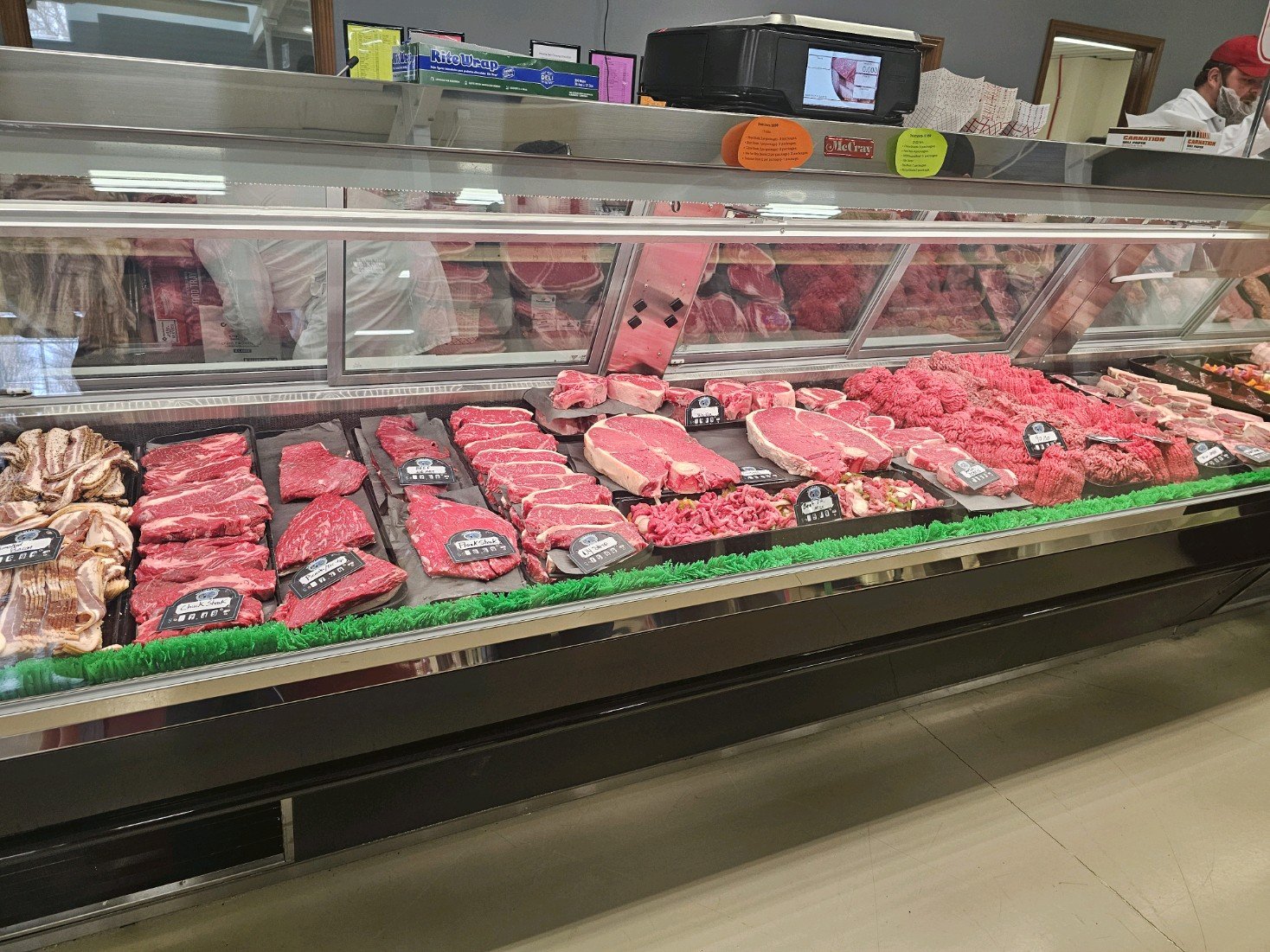Experience the Flavor and Quality at Bagley Meat Market Edwardsville IL
Experience the Flavor and Quality at Bagley Meat Market Edwardsville IL
Blog Article
Why Shopping at a Local Meat Market Guarantees Fresh, High-Quality Cuts
Buying at a regional meat market supplies distinctive advantages that usually go unnoticed by consumers accustomed to bigger retail chains. These markets supply direct accessibility to fresh, top notch cuts, a result of reduced transportation time from ranch to counter. This not only boosts flavor but additionally sustains local farmers, cultivating community relationships and sustainable techniques. Rigorous top quality control measures make sure that each acquisition fulfills high standards of safety and freshness. Yet, the implications of selecting neighborhood expand past prompt advantages, prompting a closer exam of what this choice genuinely suggests for both consumers and the neighborhood economy.
Benefits of Regional Sourcing
In the realm of food purchase, the advantages of neighborhood sourcing attract attention plainly. By buying meat from local markets, customers get direct accessibility to products that are frequently fresher and much more flavorful than those discovered in larger, commercial grocery stores. Neighborhood sourcing decreases the moment and distance food travels from farm to table, which not just enhances taste however additionally protects nutritional value.

Moreover, neighborhood sourcing often offers openness concerning the origins of the meat. Customers can ask about the farming techniques made use of, pet welfare criteria, and whether the meat is grass-fed or organic. This details encourages buyers to make educated choices straightened with their worths.
Quality Control Requirements
Local meat markets typically stick to strenuous top quality control requirements that make sure the items used meet high safety and security and freshness standards. These requirements usually encompass different stages of the meat manufacturing procedure, from sourcing to handling and storage.
First, neighborhood markets typically establish stringent distributor requirements, making sure that only reliable ranches and producers are utilized - bagley meat market edwardsville il. This decreases the likelihood of contamination and promotes greater animal welfare criteria. Additionally, several local meat markets carry out normal inspections to confirm that the meat is refined under hygienic conditions, additionally decreasing wellness risks
Temperature control is one more vital aspect of high quality guarantee. Regional meat markets frequently keep an eye on refrigeration systems to maintain ideal storage space temperature levels, guaranteeing that meat stays fresh and safe for intake. Moreover, the application of traceability systems allows markets to track the beginning of their products, supplying transparency and liability.
Lastly, personnel at regional meat markets are often trained to acknowledge indicators of wasting and recognize correct handling strategies. This dedication to quality assurance not just elevates the overall criterion of the meat yet likewise fosters customer trust fund, making local meat markets a reliable source for high-grade cuts.
Sustaining Local Farmers
Sustaining regional farmers is necessary for cultivating a lasting food system and boosting community resilience. They straight contribute to the source of incomes of farmers in their area when consumers choose to go shopping at regional meat markets. This not just sustains the neighborhood economic climate but also strengthens the agricultural sector, ensuring that it stays lively and practical.


In addition, supporting regional farmers cultivates a feeling of area and link between consumers and manufacturers. It urges transparency in food sourcing and imparts trust, as consumers can establish relationships with the individuals that raise their food. This direct connection inevitably results in a more involved and notified public, which is his response important for promoting for sustainable agricultural methods in the future.
Sustainable Practices
Lasting methods in meat markets play an essential duty in advertising environmental stewardship and ensuring pet well-being. Neighborhood meat markets commonly focus on sourcing their products from ranches that execute lasting and honest farming methods. These practices consist of rotational grazing, which aids preserve soil health and wellness and minimizes carbon exhausts, together with decreasing using antibiotics and hormones in livestock.
Additionally, neighborhood meat markets normally emphasize openness in their supply chains. Clients are supplied with details concerning the beginning of their meat, allowing them to make educated selections that align with their values. By supporting regional farmers that practice sustainable methods, consumers add to the preservation of biodiversity and the decrease of transportation emissions related to long-distance meat distribution.
Furthermore, several local meat markets take part in waste reduction approaches, such as making use of every part of the pet and promoting off-cuts that could or else go unsold. By fostering a much more sustainable approach to meat usage, these markets not only supply top notch products but also add favorably to the environment and animal welfare. Essentially, shopping at a regional meat market straightens customers with a broader activity towards ethical and responsible food sourcing.
Personalized Customer Care
Buying at a meat market commonly encompasses greater than simply the products provided; it is additionally concerning the experience and the connections constructed in between consumers and personnel. Personalized client service is a trademark of neighborhood site meat markets, establishing them in addition to larger grocery store chains. Experienced personnel make the effort to understand private customer choices, making sure that each browse through is tailored to particular demands.
Customers gain from experienced guidance on cuts, food preparation approaches, and prep work tips, cultivating a sense of trust and loyalty. This tailored interaction permits clients to ask inquiries and seek referrals, leading to educated purchasing decisions. Employee typically bear in mind routine clients and their choices, producing a welcoming ambience that grows area connections.
Moreover, personalized solution includes unique requests, such as custom cuts or certain prep work approaches, which larger retailers might not suit. This level of focus strengthens the commitment of regional meat markets go to the website to top quality and consumer complete satisfaction.
Essentially, customized customer care not just enhances the purchasing experience yet also makes certain that clients entrust the most effective items suited to their cooking requirements, making every go to a fulfilling one.
Conclusion
Supporting local farmers fosters community partnerships and reinforces the regional economic situation, while sustainable practices add to ecological stewardship. In addition, customized consumer solution improves the purchasing experience, making regional meat markets a preferred option for consumers looking for both top quality and honest considerations in their food sourcing.
The ramifications of selecting neighborhood expand beyond instant benefits, prompting a more detailed evaluation of what this option genuinely suggests for both customers and the regional economic situation.
Sustaining regional meat markets also adds to the neighborhood economic climate. Neighborhood meat markets regularly keep an eye on refrigeration systems to maintain optimal storage temperature levels, guaranteeing that meat remains safe and fresh for consumption.Local farmers are often much more attuned to the certain requirements of their areas, expanding crops and increasing livestock that straighten with neighborhood preferences and choices. Sustaining regional farmers fosters neighborhood relationships and enhances the neighborhood economic climate, while lasting practices add to ecological stewardship.
Report this page